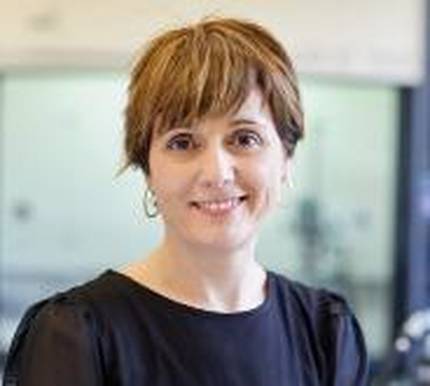Bioeconomy: ready to jump from research centres to society
2022/11/11 Elhuyar Zientzia Iturria: Elhuyar aldizkaria
The centres of the BRTA alliance have made it clear that the bioeconomy is a strategic way to respond to current economic and environmental challenges. In fact, the bioeconomy is a bet of the Basque Government, and proof of this is the Strategic Plan for the Circular Economy and Bioeconomy. This plan lists the main initiatives to be carried out in the Basque Country in the coming years, and to carry them out there is a working group within the BRTA. This working group is led by NEIKER, one of its members.

“The bioeconomy consists of making economic use of natural waste,” explains Soraya Prieto Fernández, head of Sustainable Chemistry at Tecnalia. It also specifies how it is done: “At Tecnalia we work all over the chain, from raw materials to the final product. We first extract valuable products from biomass, treat them to get intermediate chemicals and then use them to produce new materials: plasticizers, fertilizers, biocomposites, flocculants, biomethane, bioadhesives… That is, different materials and chemicals.”
“From our point of view, bioeconomics is an opportunity for the sector,” says Olatz Unamunzaga Galarza, Head of Innovation and Technology at NEIKER. He says that bioeconomics is needed to move from linear value chains to circular economy. “But we also believe it is an opportunity for farms.”
“The treatment of currently generated waste and by-products represents a significant cost for producers. And they are already very fair, among other problems, due to external factors that aggravate the economy, such as the scarcity of raw materials, energy… Therefore, for them an option is that these wastes can be transformed and used in production, or converted into intermediate products for other productions. In addition, it helps to solve the gaps, abuses and problems that arise in other sectors,” says Unamunzaga.
At NEIKER, research has focused on the production of fertilizers from agricultural and livestock waste. They also produce products for animal feed.
Unamunzaga stressed the importance they have both acquired in the current situation, which has become much more expensive owing to wars and a shortage of raw materials. “At NEIKER we have been working towards this goal for decades. Among other initiatives, we seek molecular fertilizers that act as biostimulants and that are obtained from agricultural, livestock or fishing waste. We also contribute to the development of bioplastics based on slaughterhouse waste or the cheese industry.” What cannot be returned to the primary sector is referred to TECNALIA or other centers for use in generating other products.
Crisis, opportunity
In fact, the current crisis has led the BRTA centres to take a journey and make a leap. “One of the problems of bio-products is price, as they cannot compete with those generated by other means. Now, due to scarcity and price, bioproducts are also attractive to the market. Ultimately, the market is very strong,” explains Unamunzaga.
In the same vein, Prieto highlights the importance of legislation: “Laws also contribute, for example, to requiring materials to be reused or limiting products that can be taken to landfills. There are many examples. We have mentioned waste from agriculture and livestock or forestry, but also from aquaculture or treatment plants. In addition, we are taking into account the use of industrial carbon dioxide in the bioeconomy.”
However, both acknowledge that there are still difficulties to overcome or gaps to be covered. On the one hand, they are unaware of the amount of waste generated, where and of what kind. In this regard, the recent analysis of food wasted in the Basque agri-food chain has been an important step.
On the other hand, there is a large gap between this waste and final consumers, as there are no infrastructures that transform waste and produce bio-products at an industrial level.
In any case, even recognizing deficiencies and problems, they are optimistic because they are convinced that it is a good time to transfer the technology they have developed and provide solutions to society.






